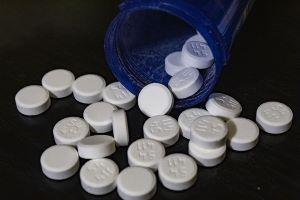Korea is arresting more people on drug charges, the Jalisco New Generation Cartel is threatening to kill a TV anchor over "unfair" coverage, and more.

Federal Prisons Failing to Provide Access to Medications for Opioid Addiction. The 2018 First Step Act required the federal prison system to expand access to medications to treat opiate addiction, but the Marshall Project reports that "bureaucratic inertia and outdated thinking about addiction programs means the federal program is still serving only a tiny fraction of those eligible." The Bureau of Prisons estimates that more than 15,000 federal prisoners were eligible for medication-assisted treatment, but only 268, or less than 2%, were receiving them. We are talking about methadone and buprenorphine here, but the Bureau of Prisons "lacks key planning elements to ensure this significant expansion is completed in a timely and effective manner."
International
Mexican Drug Cartel Threatens to Kill TV News Anchor Over "Unfair" Coverage. Masked men claiming to represent the Jalisco New Generation Cartel have released a video where they threaten to kill Milenio TV anchor Azucena Uresti over what they called "unfair" coverage. The cartel claimed that Milenio, a national cable news channel, was favoring "self-defense" vigilante groups that have been battling the cartel in Michoacan. JNGC claims the vigilantes are actually rival drug traffickers, and threatened to kill Uresti and make her eat her words. Threats against journalists are not mere words in Mexico. Dozens have been killed in recent years, and the Committee to Protect Journalists says Mexico is the deadliest country in the Western Hemisphere for journalists.
South Korea Arresting More People for Drugs. The Office for Government Policy Coordination has released a report showing drug arrests between January and July jumped 8.6% over the same period last year. The office also reported that the number of cases of drugs seized entering the country in international shipments shot up nearly three-fold to just over 600. The total number of drug arrests during the period was 7,565. Drug use is not tolerated and is relatively rare in South Korea, as is reflected in seizure numbers: Total seizures of marijuana were at just over 100 pounds and total seizures of other drugs, including heroin and methamphetamine, totaled slightly more than 300 pounds.
This work by StoptheDrugWar.org is licensed under Creative Commons Attribution-ShareAlike 4.0 International
Add new comment